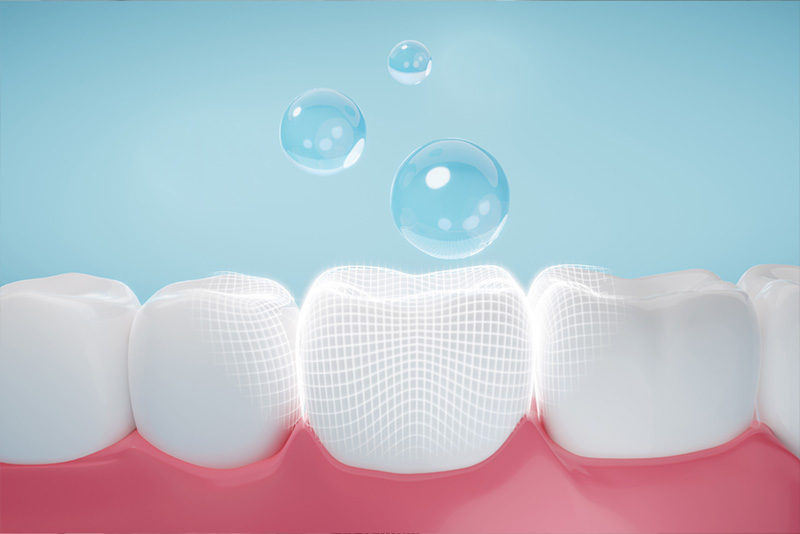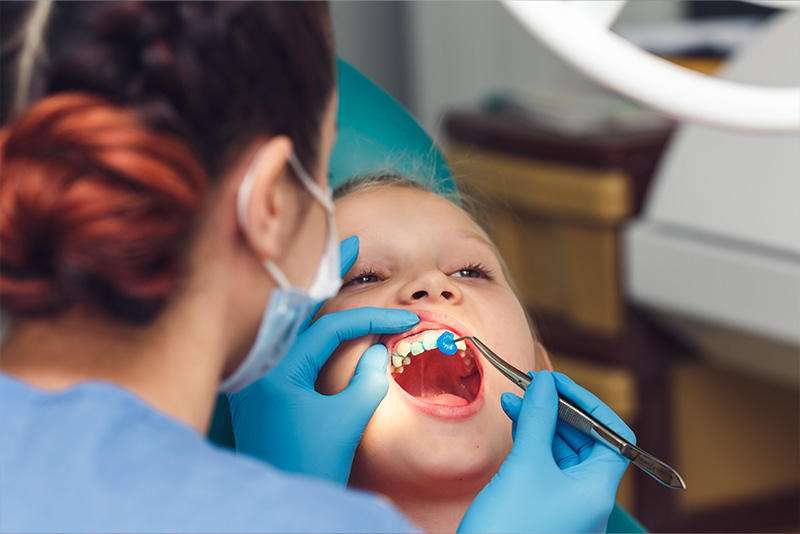According to the National Institute of Dental and Craniofacial Research, tooth decay is the single most common chronic childhood disease. Over 50 percent of 5 to 9 year old children have at least one cavity or filling, with that proportion increasing to 78 percent among 17-year-olds. Additionally, more than 51 million school hours are lost each year to dental-related illness.
As an added level of protection against dental decay, it is recommended that children receive periodic fluoride treatments as part of a program of preventive dental care. Fluoride is a naturally occurring mineral that helps to prevent cavities by making the hard outer enamel of the teeth more resistant to the acids produced by the harmful sugar processing bacteria in dental plaque. It can also help to remineralize the teeth to reverse incipient decay.


During a periodic checkup visit, the dentist may recommend the application of a topical fluoride to help strengthen and protect both a child’s baby teeth and the permanent ones. Topical fluorides can be applied as a foam, gel or varnish. Whatever type is selected, the procedure is quick and painless. Once the teeth are cleaned the fluoride is simply painted on the surfaces of the teeth or placed in a small tray to sit over the teeth for a brief period of time. Some types of fluoride treatment require no eating or drinking for half an hour as the fluoride is absorbed into the surface of the teeth. The dentist and dental hygienist will provide specific and detailed instructions as needed.
Fluoride treatment may also be indicated in adults who are at a higher risk for developing tooth decay.
Fluoride treatment is a professional dental procedure that involves applying fluoride, a natural mineral, to the teeth to help strengthen enamel and prevent tooth decay.
Fluoride treatment is beneficial for individuals of all ages, especially children, teenagers, and adults at a higher risk for cavities due to factors like diet, oral hygiene habits, or a history of dental issues.
Fluoride treatment can be applied in several forms, including gels, foams, or varnishes. The dentist will apply the fluoride directly to the teeth, and you may be asked to avoid eating or drinking for a short period afterward.
The fluoride treatment process is quick, typically taking only a few minutes to complete, making it an easy addition to your regular dental visit.
Yes, fluoride treatment is safe when administered by a dental professional. The amount of fluoride used in treatments is carefully controlled to ensure safety and effectiveness.
The frequency of fluoride treatments depends on individual needs and risk factors. Your dentist will recommend a schedule based on your oral health, but it is generally suggested every six months to a year.
No, fluoride treatment is an additional preventive measure and should not replace your regular oral hygiene practices, including brushing twice a day and flossing daily.
Fluoride treatment helps strengthen tooth enamel, reduces the risk of cavities, and can even reverse early signs of tooth decay, contributing to overall oral health.
Fluoride treatment is generally well-tolerated, but some individuals may experience mild side effects like temporary tooth sensitivity or a change in taste. These effects typically resolve quickly.
Many dental insurance plans cover fluoride treatments, especially for children and high-risk patients. Check with your insurance provider to understand your coverage specifics.